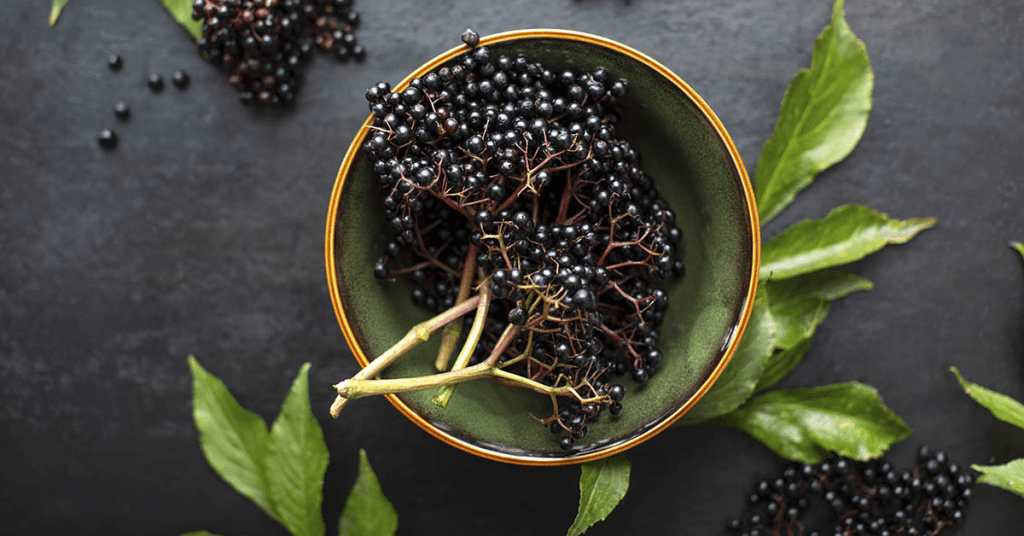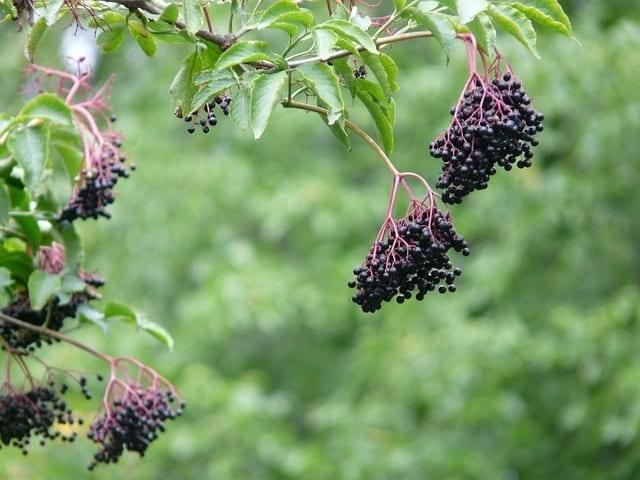As flu season approaches, many people turn to natural remedies to support their immune systems. Elderberries, used for centuries in folk medicine, have gained popularity for their potential health benefits, particularly in boosting immunity and easing cold symptoms. While you can buy elderberry syrups and supplements in stores, making your own DIY elderberry syrup in an Instant Pot is a quick and easy way to prepare for winter. In this article, we’ll explore the health benefits of elderberries, potential risks, and how to make your own elderberry syrup in just 20 minutes.

The Potential Health Benefits of Elderberries
Elderberries are small, dark berries that come from the Sambucus tree, a flowering shrub native to Europe and North America. These berries are packed with essential nutrients, including vitamin C, vitamin A, potassium, and antioxidants. In addition to their nutritional profile, elderberries have been traditionally used to treat colds, the flu, and other respiratory infections.
Recent studies suggest that elderberries may have antiviral and immune-boosting properties. For example, a 2019 study found that people who took elderberry syrup experienced shorter durations of flu symptoms compared to those who took a placebo. Another study indicated that elderberry supplements could reduce cold symptoms after long flights. While the research is promising, it is important to note that most studies have small sample sizes, and more research is needed to fully understand the benefits of elderberries.
The Potential Risks of Elderberries
While elderberries offer potential health benefits, they must be consumed with caution. Raw elderberries, as well as the plant’s seeds, leaves, and bark, contain toxic compounds that can cause nausea, vomiting, and diarrhea. These toxins, including cyanogenic glycosides, are destroyed during cooking, making elderberry syrup and other cooked preparations safe to consume.
It’s important to remember that while elderberry syrup can support the immune system, it is not a substitute for vaccines, such as the flu shot. There is also no clinical evidence that elderberry syrup is effective against COVID-19, and the U.S. Food and Drug Administration (FDA) has warned against companies making such claims.
Elderberry products are not recommended for children, pregnant women, or nursing mothers without consulting a healthcare professional. Although elderberries are generally considered safe for most people when properly prepared, it’s always a good idea to talk to your doctor before introducing any new supplements into your routine.
DIY Elderberry Syrup Recipe for Instant Pot
Making your own elderberry syrup at home is simple and cost-effective. Using an Instant Pot, you can have your syrup ready in just 20 minutes, ensuring you have a natural remedy on hand throughout the cold and flu season.
Ingredients:
- 4 slices fresh ginger root
- 1/2 lemon
- 2 cinnamon sticks
- 6 whole cloves
- 1 cup dried elderberries
- 4 cups filtered or bottled water
- 1 cup raw honey
Instructions:
- Prepare the ingredients: Place the ginger, lemon, cinnamon sticks, cloves, and dried elderberries in the Instant Pot. Add 4 cups of water.
- Cook in the Instant Pot: Set the Instant Pot to “manual” and cook on high pressure for 10 minutes.
- Release pressure and reduce: Perform a quick pressure release, then open the lid. Switch the Instant Pot to the “saute” setting and boil the syrup for 10 minutes, allowing the liquid to reduce by half.
- Strain and mash: Pour the mixture through a fine-mesh strainer into a bowl, pressing the berries with a spatula to extract all the liquid. Discard the berries and any other solids.
- Add honey: Allow the syrup to cool to room temperature, then stir in the raw honey. This will help preserve the syrup and add sweetness.
- Store and use: Transfer the syrup to an airtight container and refrigerate for up to two months. Adults can take 1-2 teaspoons daily during cold and flu season for added immune support.
This recipe was adapted from Diana Johnson at Eating Richly, who offers helpful tips and a video tutorial on making elderberry syrup.

Other Supplements for Cold and Flu Season
In addition to elderberry syrup, several other supplements may help strengthen the immune system and reduce the duration of cold and flu symptoms.
Vitamin C
Vitamin C is one of the most well-known supplements for immune support. Regular consumption of vitamin C may reduce the severity and duration of colds, although taking it after symptoms begin may not provide the same benefits.
Vitamin D
Vitamin D is essential for overall health, and deficiencies can weaken the immune system. Supplementing with vitamin D, especially during the winter months, may help prevent respiratory infections.
Zinc
Zinc is another powerful immune booster. Taking zinc lozenges or supplements at the first sign of a cold can help reduce its duration. However, be careful not to exceed the recommended dosage, as too much zinc can lead to side effects like nausea and headaches.
Precautions and Final Thoughts
While elderberry syrup and supplements can be a helpful addition to your wellness routine during cold and flu season, they are not a cure-all. The best way to protect yourself and your loved ones is by practicing good hygiene, getting enough sleep, eating a balanced diet, staying hydrated, and managing stress.
Before introducing any new supplements into your routine, especially if you have underlying health conditions or are pregnant or nursing, it’s important to consult with a healthcare professional. Elderberry syrup is a natural way to support your immune system, but it’s essential to use it safely and as part of a broader approach to staying healthy.
By making your own elderberry syrup at home, you can enjoy its potential benefits without the cost of store-bought versions. Stay prepared for winter with this simple, quick, and effective remedy.


